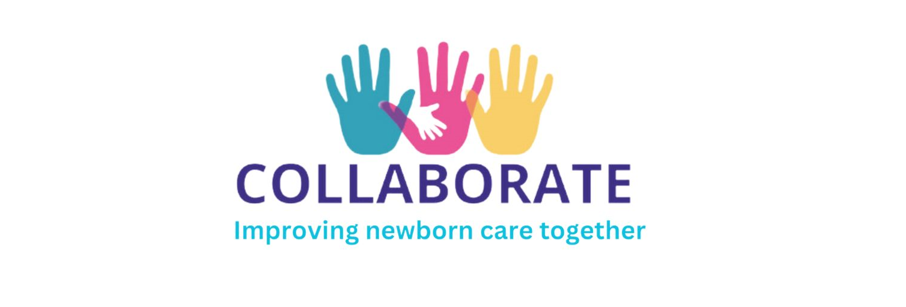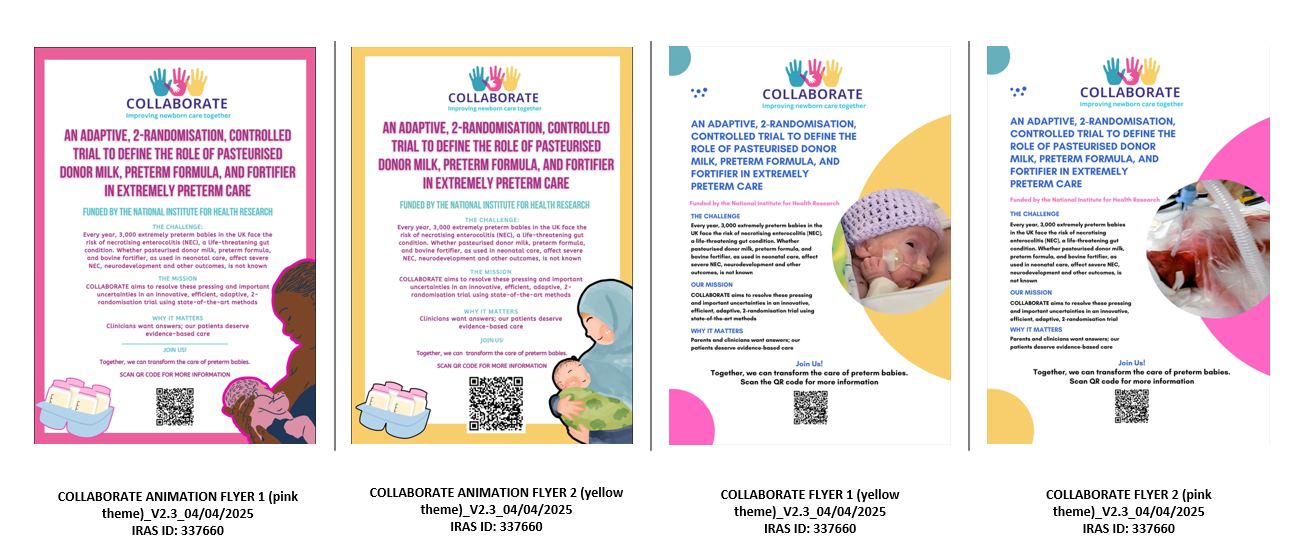COLLABORATE
THE STUDY

COLLABORATE is an efficient, UK-wide, real-world-data-enabled, adaptive, 2-randomisation, controlled trial to determine clinical efficacy, effect size, and safety of widely used enteral feeds in reducing necrotising enterocolitis, mortality, and cognitive impairment in extremely preterm babies.
COLLABORATE is supported by NEC UK, Bliss, Adult Preemie Advocacy Network, The George Institute for Global Health, British Association for Neonatal Neurodevelopmental Follow-Up, British Association of Paediatric Surgeons and Neonatal Nurses Association.
Watch this short explainer below:
COLLABORATE Engagement Materials

COLLABORATE Explainer Video for Clinicians
This video explains the trial in clinical terms

COLLABORATE Explainer Video for Parents
This video explains the trial in lay terms to parents and the masses.

RANDOMISATION Explainer Video
This video explains "randomisation" in lay terms

NNRD Explainer Video
This video explains the NNRD in lay terms
ENGAGEMENT MATERIALS

To print the COLLABORATE fliers, click the link below to download Fliers 1 to 4 in a ZIP folder:
STUDY GOALS
- Randomisation 1 will determine if pasteurised human donor milk or preterm formula affect NEC and other outcomes if a supplement for own mother’s milk is required.
- Randomisation 2 will determine if routine macronutrient fortification of human milk is beneficial.
FUNDER AND SPONSOR
COLLABORATE is funded by the National Institute for Health Research and sponsored by Imperial College London. COLLABORATE is a National Neonatal Research Database enabled study and will be delivered by the Imperial Clinical Trials Unit
INVESTIGATORS
COLLABORATE is led by Victoria CORNELIUS (Professor of Medical Statistics and Trial Methodology, Imperial College London), Neena MODI (Professor of Neonatal Medicine, Imperial College London), James BOARDMAN (Professor of Neonatal Medicine, University of Edinburgh), Peter BRADLEY (Director of Services, Bliss), Lauren INGLEDOW (Adult Preemie Advocacy Network), Annemarie LODDER (Parent, Patient and Public Involvement and Engagement Lead, Pregnancy and Prematurity theme, NIHR Biomedical Research Centre, Imperial College London), Ramon LUENGO-FERNANDEZ (Associate Professor of Health Economics, University of Oxford), Andrew MORRIS (Director, Health Data Research UK), John NORRIE (Professor of Medical Statistics, Queen’s University Belfast), Shalini OJHA (Professor of Neonatal Medicine, University of Nottingham), David QUINE (Consultant Neonatologist, Edinburgh Royal Infirmary), Sabita UTHAYA (Consultant Neonatologist, Professor of Practice, Imperial College London), James WASON (Professor of Biostatistics, University of Newcastle), and Hilary WONG (Consultant Neonatologist, Affiliated Assistant Professor, University of Cambridge)
FOLLOW COLLABORATE
Our official social media accounts
X (formerly Twitter), YouTube, LinkedIn, Mastodon , Bluesky
CONTACTS
Please email us at COLLABORATE@imperial.ac.uk if you have any questions or would like us to visit your neonatal unit or network to discuss COLLABORATE.


